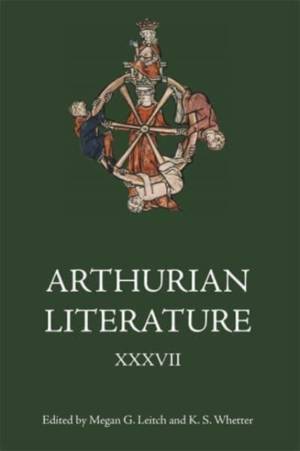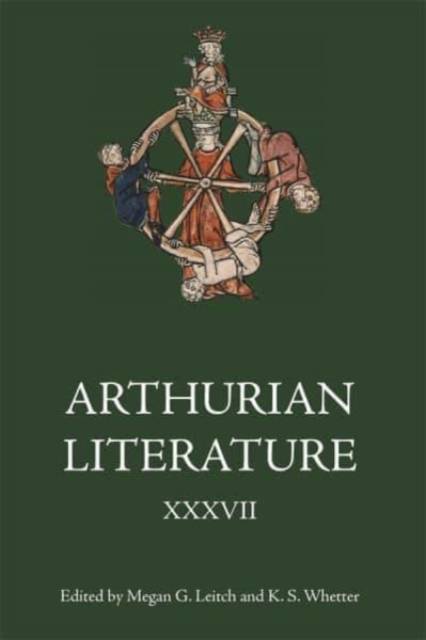
- Afhalen na 1 uur in een winkel met voorraad
- Gratis thuislevering in België vanaf € 30
- Ruim aanbod met 7 miljoen producten
- Afhalen na 1 uur in een winkel met voorraad
- Gratis thuislevering in België vanaf € 30
- Ruim aanbod met 7 miljoen producten
Zoeken
Arthurian Literature XXXVII
Malory at 550: Old and New
€ 177,45
+ 354 punten
Omschrijving
The essays here are devoted to that seminal Arthurian work, Sir Thomas Malory's Le Morte Darthur. Developments of papers first given at a conference, "Malory at 550: Old and New", they emphasise here the second part of its remit. Accordingly, several contributors focus new attention on Malory's style, using his stock phrases, metaphors, characterization, or manipulation of sources to argue for a deeper appreciation of his merits as an author. If, as others illustrate, Malory is a much better artist than his twentieth-century reputation allowed, then there is a renewed need to re-assess the vexed question of the possible originality of his "Tale of Sir Gareth of Orkeney". Similarly fresh approaches underlie those essays re-examining Malory's attitude to time and the sacred in "The Sankgreal", the manner in which the ghosts of Lot and his sons highlight potential failures in the Round Table Oath, or the pleasures and pitfalls of Arthurian hospitality. The remaining contributions argue for new approaches to Malory's narrative gaps, Launcelot's status as a victim of sexual violence, and the importance of rejecting Victorian moral attitudes towards Gwenyvere and Isode, moralizing that has still informed much recent scholarship addressing Malory's female characters.
Contributors: Joyce Coleman, Elizabeth Edwards, Kristina Hildebrand, Cathy Hume, David F. Johnson, Megan Leitch, Andrew Lynch, Molly A. Martin, Cory James Rushton, + Fiona Tolhurst, Michael W. Twomey
Contributors: Joyce Coleman, Elizabeth Edwards, Kristina Hildebrand, Cathy Hume, David F. Johnson, Megan Leitch, Andrew Lynch, Molly A. Martin, Cory James Rushton, + Fiona Tolhurst, Michael W. Twomey
Specificaties
Betrokkenen
- Uitgeverij:
Inhoud
- Aantal bladzijden:
- 250
- Taal:
- Engels
- Reeks:
- Reeksnummer:
- nr. 37
Eigenschappen
- Productcode (EAN):
- 9781843846352
- Verschijningsdatum:
- 14/06/2022
- Uitvoering:
- Hardcover
- Formaat:
- Genaaid
- Afmetingen:
- 156 mm x 234 mm
- Gewicht:
- 530 g

Alleen bij Standaard Boekhandel
+ 354 punten op je klantenkaart van Standaard Boekhandel
Beoordelingen
We publiceren alleen reviews die voldoen aan de voorwaarden voor reviews. Bekijk onze voorwaarden voor reviews.










